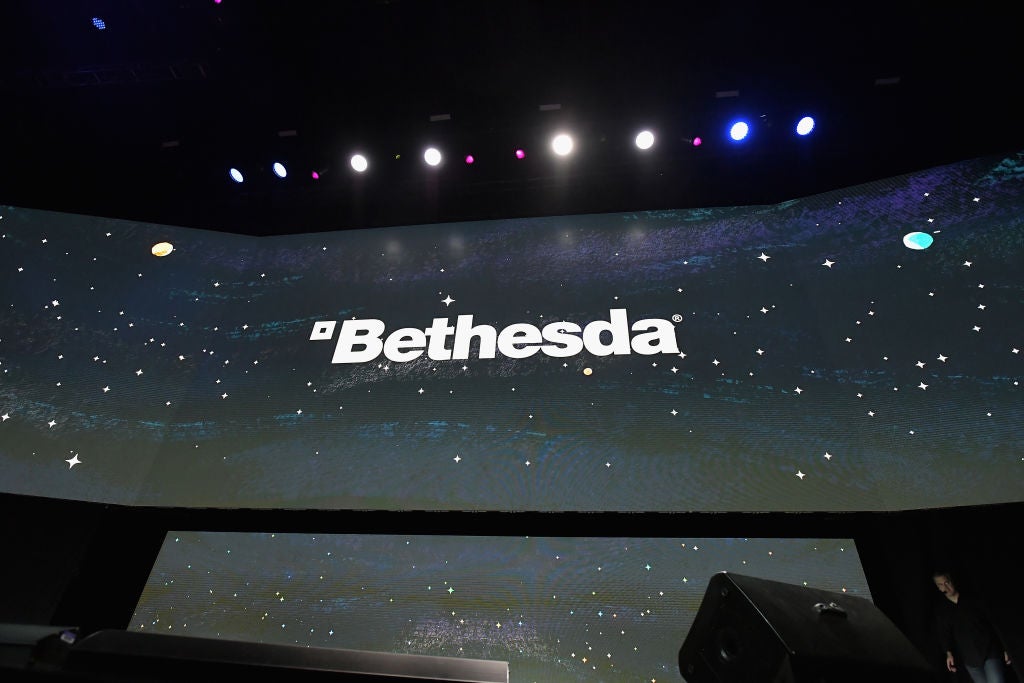
Esports is not a real sport. Not like darts, miniature golf or pool. Those are games for real athletes, at least according to the Swedish Sports Confederation.
Despite becoming a billion-dollar industry, the Scandi sports organisation has refused to accept esports into its ranks. By doing so, it has also prevented one of the biggest esports events, The International, from being held in Stockholm in August.
If you think this means gamers are ticked off about it, well, you’d be right.
Here’s how it went down: back in 2019 gaming behemoth Valve set out to organise the tenth iteration of The International Dota 2 championship, the world’s biggest esports competition with a $40m pot at stake. The event was originally set to take place in 2020. However, like everything else, it was postponed because of the Covid-19 pandemic.
Nevermind, Valve thought, let’s just move it to August 2021. So it did. Thus it seemed as if the stage was set for a clash of the gaming titans. There was just one wrinkle: the Swedish Sports Confederation voted earlier this year not to accept esports as a member.
Without membership in the federation, The International could not get elite sporting event status. Consequently, international esport athletes wouldn’t be granted visas to travel and compete. Valve asked the Swedish minister of the interior Mikael Damberg to reclassify The International as an elite sporting event.
How well do you really know your competitors?
Access the most comprehensive Company Profiles on the market, powered by GlobalData. Save hours of research. Gain competitive edge.

Thank you!
Your download email will arrive shortly
Not ready to buy yet? Download a free sample
We are confident about the unique quality of our Company Profiles. However, we want you to make the most beneficial decision for your business, so we offer a free sample that you can download by submitting the below form
By GlobalData“Our request was immediately denied,” Valve said in a blog.
Valve then filed a request to the Swedish government, which didn’t offer any support. The event organisers have asked the government to reconsider, but isn’t expecting an answer anytime soon given that Sweden is currently in the midst of a constitutional crisis.
In lieu of any action from the Scandi gov, Valve is now looking to relocate the championship to another European country.
“We remain committed to hosting The International this year in a way that is both safe for all involved, and properly celebrates the players and fans of Dota 2,” the company said.
“Extremely embarrassing for Sweden”
Nevertheless, news that the Swedish Sports Confederation has rejected esports as a real sport – whilst still accepting sports not known for their athleticism such as darts, boule and pool – has stirred up anger among supporters of the sport.
“It is always disappointing when news like this breaks because it sometimes feels like esports’ journey to be recognised as being on par with traditional sport is a series of steps forward followed by one or two steps back,” Mike Jones, associate at law firm Harbottle & Lewis, tells Verdict.
The sentiment was echoed by members of the Swedish esport community.
“It feels so freaking unnecessary,” Magnus Jonsson, chairperson of E-Sportförbundet SESF, told Aftonbladet. “Everyone we’ve spoken with agrees that it’s caused a stupid situation. Before the restrictions there wouldn’t have been any issues in getting gamers to come over. It’s just one phrase that’s caused this major obstacle for us.”
“It’s extremely sad,” Sammi Kaidi, chairman at Svenska E-sportförbundet, the Swedish esport federation, told Expressen. “This is a massive tournament and it would’ve been a fantastic opportunity for Swedish esports to demonstrate what it’s got.”
The government is also facing a backlash from local politicians in Stockholm.
“It’s extremely embarrassing for Sweden,” Anna Köning Jerlmyr, the municipal commissioner for finance of Stockholm and member of the conservative party Moderaterna, told Aftonbladet. “We have a great international reputation for developing video games, but now we’re undermining the significance of the entire esports community, causing the most important international competition to relocate away from Sweden because we cannot provide any visas. This is big black mark for Sweden and for the government’s ability to handle this important industry that trades with more than just pulp and iron ore.”
Rupantar Guha, associate project manager of GlobalData’s thematic research team, understands the uproar.
“The International is the largest esports tournament by prize pool – $40m in 2021 – and it is returning after a year’s gap, so naturally the excitement amongst players, fans, and other event stakeholders is high,” Guha tells Verdict.
“The sudden announcement of the relocation has come as something of a surprise, although the Swedish government’s decision to restrict overseas players is justified. On the bright side, Valve’s decision to organise the tournament elsewhere should protect the investments made by many stakeholders, including teams, players, advertisers, and streaming channels.”
The International a bellwether for esports status
The story also highlights how esports in general is fighting an uphill battle to be recognised as a real sport, which isn’t helped by the fractured state of the community.
“In my view, the key challenge for esports is the lack of uniformity in governance,” Guha says. “The industry is fragmented as multiple consortiums trying to govern it.”
While industry consortiums such as the International Esports Federation and the World Esports Association are trying to bring uniformity to esports, they have so far made little progress, especially since local regulatory bodies in countries like Japan and South Korea have added to the confusion, Guha argues.
“Esports needs an international governing body, like those found in traditional sports like football, cricket and rugby,” he says. “As the industry grows, it will require global leadership to develop best practices guidelines and uniformity, both of which will add to its legitimacy as a mainstream sporting activity, thereby helping players be accepted as athletes.”
In the great scheme of things, Guha is confident that the relocation of The International won’t entirely scupper the progress made by the esports community.
“Esports has thrived amidst the pandemic due to its digital nature and popularity among millions of fans worldwide,” Guha says. “Last year many esports events transitioned to online formats, helping the industry to stay up and running, while traditional sports were on hold. Yes, some esports stakeholders, particularly venue providers, were impacted by the transition, but the industry stayed resilient. In fact, I believe online events will be a regular aspect of esports in the coming years.”
Esports events are watched by an estimated 400 million people around the world with revenues expecting to reach $1.08bn in 2021, according to recent thematic research from GlobalData.
Given the growth of the sport, the experts Verdict has spoken with are bullish about esports’ chances of becoming more mainstream.
“[Esports] is moving in the right direction and over time more authorities around the world will give esports the proper recognition its reach and fanbase deserve,” Jones says.
“The US has recognised esports players as professional athletes since 2013, the IOC has made positive noises about the potential future inclusion of esports in the Olympic Games (albeit as an exhibition event initially) and more and more countries are recognising esports as a professional sport. Whilst it is frustrating for Valve that the Swedish authorities have gone the other way this time, it is very possible that this decision will be seen as an outlier that will have little impact on the wider esports industry and its journey for recognition and status.”
So while The International seemingly won’t be held in Stockholm, is far from game over for the community.







